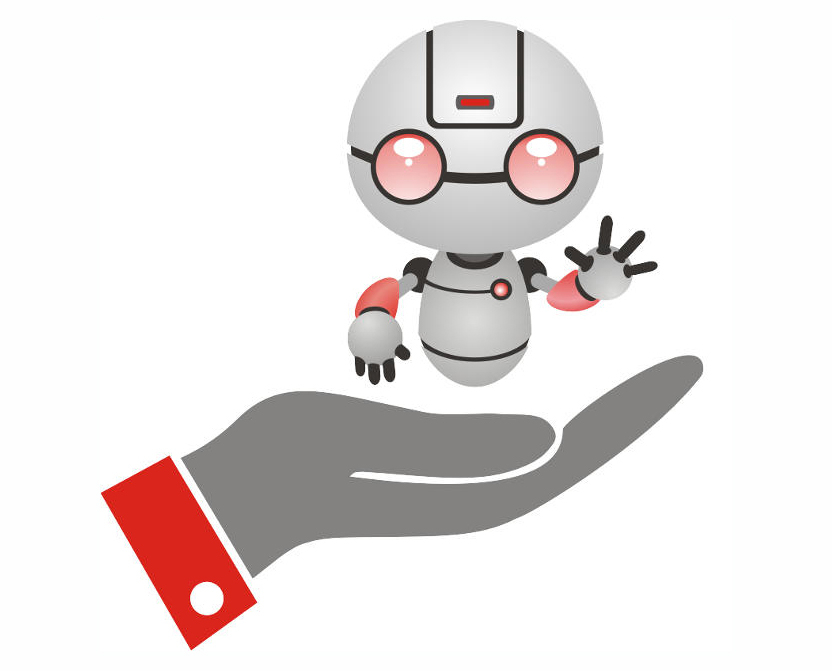
grandfailure - stock.adobe.com
Why Robotics Needs Responsibility
Ethical aspects are rarely considered when it comes to the design and the programming of a robot. This is where Aimee van Wynsberghe, co-founder and co-director of the Foundation for Responsible Robotics, is stepping in.
Aimee van Wynsberghe was born in London, Ontario, where she did a bachelor’s degree in cell biology. She left Canada to do a master’s degree in Applied Ethics and Bio Ethics and later her PhD in robot ethics in the Netherlands. In 2015, she co-founded the Foundation for Responsible Robotics, which she is co-directing today together with Shannon Vallor. Aimee van Wynsberghe is living in The Hague, working as an Assistant Professor in Ethics and Technology at the TU Delft.
Science journalist Caroline Ring talked to van Wynsberghe about the ethical issues involved in developing and using robots.
Robots in a daily life seem to be a future vision. Why should one be concerned about robot ethics today?
Most people probably think that they don’t interact with a robot each day. But robots are involved in a lot of things we do in a day like robots in a distribution centre when you do online shopping or when things have to be assembled in the factory.
To what extent is ethics related to the development of robots?
It’s not about the robots acting unethically, it’s about the choices the humans at the top of a company are making that are unethical. And ethics is related to development of a robot by how the designers and developers act ethically.
For example, when you do online shopping, most likely your groceries are coming from a distribution centre where there’s very few humans working. It is mostly robots fetching items, which sometimes creates a really difficult situation for the humans. They have to adjust their working power in order to accommodate the robot. Stories about centres of Amazon tell about people who don’t have time to take their bathroom breaks because they have to keep up with the speed of the robots. To maintain our online shopping habit there are unethical things happening downstreams that we are not paying attention to.
Are there ethical aspects that affect every subject area of robotics?
Yes. For example, one always has to consider issues of sustainability and electronic waste: What’s happening to robots after we stop using them? Are they being recycled and part of the circular economy? Computer power has to be considered in this context as well. Just training an artificial intelligence algorithm has a huge carbon footprint.
As robots are always a hardware, you also need to ensure they are safe when humans are around. When robots are collecting intimate data, privacy becomes a very critical issue. For example, when you’re telling your robot your secret or when your robot is in your home and can hear conversations.

Aimee van Wynsberghe, co-founder of the "Responsible Robotics Foundation"
How did you get into robot ethics?
During my studies in cell biology, in the summer I was working as a research assistant at CSTAR, which stands for Canadian Surgical Technology & Advanced Robotics. We were for example training surgeons how to use the robotic da Vinci Surgical System. I got to speak with nurses and surgeons, asking them about how they felt when they were using the new system as they weren’t touching the patient anymore. They weren’t even looking at the patient’s body. What did that mean for them?
So, I planned to study ethics and then go back to cell biology later. But once I had left cell biology, I became really passionate and interested in the idea of looking at all of the societal and ethical questions that robots are now confronting us with. After I was dealing with healthcare robots, surgical robots in particular, I’m now also studying the use of drones in a humanitarian context, I’m studying sex robots, robots in agriculture and in logistics.
Four years ago, you even started a foundation to support robot ethics.
I realised that ethical issues in robotics were very critical. There were so many robotic products on the market that doing the academic research didn’t feel enough to me. I wanted to have much more of an impact. That’s when myself and Noel Sharkey started the Foundation for Responsible Robotics. It’s a non-profit organisation aimed at taking all of the academic work that takes place in robot applications and trying to bring that to the public domain, to raise awareness of both the general public and policy makers.

Why didn’t you choose to investigate this from a research capacity?
Bringing the research outside of the academic world this way is much more effective. The goal of the foundation is to show the public what is happening in robot applications in a realistic way to prevent people from having these science fiction images of the robots.
We did for example a report on drones where we showed all their different uses outside of the commercial aspects – for example, to bring medication and vaccines into areas where we cannot get on foot after a natural disaster. This way, we can have a conversation with the public about the positive and negative uses of this technology.
You’re also suggesting a quality mark for robot products.
With the quality mark project, we’re trying to address the gap between theory, that is academic research, and the industrial practise. We’re working together with Deloitte to see how we can translate procedural elements or product elements on the part of industrial producers into something that realises sustainability and wellbeing. With Deloitte we have one of the top four auditing and accounting firms who says we also believe in this project and we’re going to help you make it happen. The Foundation for Responsible Robotics is a small non-profit organisation, so this is a big deal for us.

The foundation is still quite young. Could you already make an impact in decision making?
We did a report on sex robots a few years ago. This report was meant to engage the public in a discussion on the regulation of sex robot developments. We had hundreds of thousands of responses on this report.
In addition, we did take a stand on the child-like versions of sex robots by saying it is unethical to experiment with these robots. We gave a talk at the council of Europe to stimulate their own report and discussion about this use. We also worked with a United States senator who created a legislation called the CREEPER Act which is to prevent the ownership and the distribution of the child version of sex robots.
Do you think robot ethics will be implied into the development of robots one day?
I hope that in the next ten to 15 years the questions that we’re raising now will be part of a normal design process. But then there will be different ethical issues. For example, if robots in the next five to ten years will be used more and more to help people with loneliness, we have to ask for example, how do you remind a person that this is a robot and not a human being? It’s our task as a foundation to be there as an external party that calls attention for the issues that we should be thinking of as the technology develops further.


